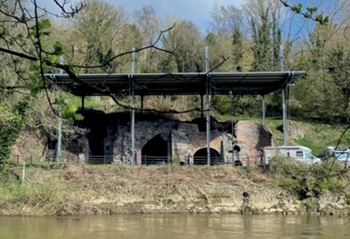Energy Innovation Agency
Contents |
[edit] Background
The Energy Innovation Agency launches on April 28, 2022, its aim is to help Greater Manchester reach its carbon-neutral targets. It has been established by Manchester Metropolitan University, The University of Manchester, the University of Salford, Bruntwood, Greater Manchester Combined Authority, The Growth Company, Hitachi Europe and SSE.
Working together through the Agency, this partnership will accelerate the transition towards a carbon-neutral economy by bridging the energy innovation gap and increasing the deployment of innovative energy solutions to speed up the reduction of carbon emissions and help the Greater Manchester city-region meet its ambitious 2038 carbon-neutral target.
Further information can be found on the Agency website https://www.energyinnovationagency.co.uk
[edit] Aims
- Innovation Exploitation: Supporting and scaling the most promising decarbonised energy innovations to maximise the early adoption of effective carbon-neutral energy systems.
- Decarbonization: Reducing Greater Manchester’s carbon emissions from energy to be a carbon-neutral city region by 2038.
- Rapid Commercialisation: Rapid transition of carbon-neutral energy innovations to full-scale integration.
- Investment: Creating and promoting investment opportunities for carbon-neutral energy innovations and projects in the city region.
The Agency offers an impartial energy innovator validation and scale-up service to organisations within and beyond Greater Manchester, providing access to a range of services designed to help commercialise and scale their innovations
[edit] Challenge areas
Generation and Storage: Energy Storage is a fundamental partner to the increased levels of intermittent generation. Greater Manchester also has far-reaching goals for switching to renewables, but with only 2.5% of GM's energy currently generated from low-carbon energy, they need innovative solutions that can make a big impact.
Decarbonization of Heat: Reducing carbon emissions produced for heating is an essential part of reaching Greater Manchester's carbon-neutral target. Aiming to have 60% of homes and businesses powered by low carbon heating by 2030. Through the Agency and partners, they provide support to empower innovative solutions that can be deployed at scale to accelerate the decarbonization of heat in buildings.
Low-Carbon Transport: Transport accounts for one-third of Greater Manchester's carbon emissions, and air pollution contributes to over 1,200 deaths per year. To combat this, the Mayor has launched the GM Clean Air Zone, which is set to cover the whole of Greater Manchester. The predicted increase in EV uptake and charging requirements is also going to bring new demands on the energy systems. Whether its low carbon transport itself (EVs, hydrogen buses and trains, sustainable transport initiatives) or the systems, models, and data (charging infrastructure, flexibility solutions) that underpin the shift to a carbon-neutral GM, they want to hear about your innovation.
Diversity & Flexibility: In 2020, renewable electricity contributed up to 40% of the UK's generation mix. With significant growth of intermittent generation such as wind and solar, combined with the electrification of heat and transport, we are likely to see new usage patterns and challenges for the UK's transmission and distribution networks.
[edit] Innovation pitches
The Energy Innovation Agency (Agency) will launch in Manchester on 28 April 2022 at Bruntwood Circle Square. The event will include an opportunity for entrepreneurs and organisations to apply to pitch their innovations to the agency team and partners and to apply for tours of a Bruntwood-managed premises requiring solutions that contribute to the decarbonization of heat.
There will also be a chance to hear from leading experts in the field on:
- UK and Greater Manchester’s net-zero ambitions and current progress on decarbonization.
- The importance of innovation to achieving net-zero.
- The support available to innovators through the Energy Innovation Agency.
- Specific challenges faced by Bruntwood, as one of Greater Manchester’s largest commercial landlords, who own and manage over 100 office buildings in the North West and Midlands regions.
Further information can be found on the Agency website https://www.energyinnovationagency.co.uk
[edit] Related articles on Designing Buildings
- Accredited energy assessor.
- Building log book.
- Buildingomics.
- COP21 Paris 2015.
- CRC Energy Efficiency Scheme.
- Demolition.
- Emission rates.
- Energy Act.
- Energy certificates.
- Energy consumption.
- English Housing Survey 2018-19 reports released.
- Energy Related Products Regulations.
- Energy Savings Opportunity Scheme.
- Environmental modelling.
- Green building.
- Heating degree days.
- How a focus on carbon can drive innovation benefits
- ICE launches engineering route map to deliver UN SDGs.
- ICE President Rachel Skinner presents Shaping Zero.
- National Planning Policy Framework.
- Organisations prompt government to Build Back Green.
- Performance gap.
- Renewable energy.
- Shaping Zero seeks carbon champions.
- Simple payback.
- Sustainability.
- The Carbon Plan: Delivering our low carbon future.
- What 'net-zero emissions' mean for civil engineers
Featured articles and news
The act of preservation may sometimes be futile.
Twas the site before Christmas...
A rhyme for the industry and a thankyou to our supporters.
Plumbing and heating systems in schools
New apprentice pay rates coming into effect in the new year
Addressing the impact of recent national minimum wage changes.
EBSSA support for the new industry competence structure
The Engineering and Building Services Skills Authority, in working group 2.
Notes from BSRIA Sustainable Futures briefing
From carbon down to the all important customer: Redefining Retrofit for Net Zero Living.
Principal Designer: A New Opportunity for Architects
ACA launches a Principal Designer Register for architects.
A new government plan for housing and nature recovery
Exploring a new housing and infrastructure nature recovery framework.
Leveraging technology to enhance prospects for students
A case study on the significance of the Autodesk Revit certification.
Fundamental Review of Building Regulations Guidance
Announced during commons debate on the Grenfell Inquiry Phase 2 report.
CIAT responds to the updated National Planning Policy Framework
With key changes in the revised NPPF outlined.
Councils and communities highlighted for delivery of common-sense housing in planning overhaul
As government follows up with mandatory housing targets.


















